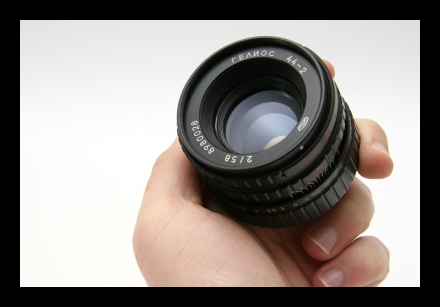
There are some with 16 blades being sold on eBay, but these have been unofficially modified afterwards, and so are not original. The earliest had 13, though 8 is more common, and the later models had 6.

Something that is fairly interesting is that each lens has the logo of the plant where it was made visible on the front, so you can work out who (probably) made your lens by referring to this handy page (or this one if you’d rather avoid Google Translate). My Helios 44 lens collection (part of it) Any quibbles over the sharpness are clearly coming from people that are more interested in gear talk and technical specs than actually shooting photographs in the real world. The truth is that the Helios 44 is more than sharp enough, and surprisingly so for both its price point and availability.
#Helios lens official manual
I’m not entirely sure what people are expecting, but if clinical sharpness is required, it seems strange for them to be using vintage manual focus lenses in the first place. There are a few reports elsewhere on the web that talk about the Helios 44 being only ‘passably’ sharp, or that it is ‘barely usable’ when shot widen open.
#Helios lens official full
It is worth noting that if you are shooting on anything less than full frame (a digital camera with APS-C for example), the effect will obviously be less pronounced. This is something I am yet to nail perfectly. Helios 44-2 Helios 44M Helios 44M Helios 44M-6Īchieving a full on case of the infamous ‘swirly’ bokeh can be pretty difficult, as it requires some specific combination of background, distance, highlights, and focus. This feature in particular is really what gives these lenses their reputation – especially as digital shooters have increasingly discovered their idiosyncracies. Even without getting the full ‘swirl’, out of focus areas are rendered nicely, and have a real character to them. The bokeh produced by the Helios 44 is its most distinctive, and sought after feature.

Despite some wobbles on the older ones, they are much more reliable, and often in better condition than many of the other vintage lenses I’ve seen – especially from the USSR. They are a nice size, built well, and have a good heft. It’s quite possible that if you have an old Zenit camera lying around, that there might already be one attached, so have a look in the attic before heading on to eBay if you want to grab one. The lens was mass produced in the USSR for a number of decades in various forms, and as such is fairly easy and inexpensive to find. A Soviet copy of the Carl Zeiss Biotar 58mm f2, the Helios is known for its unique ‘swirly’ bokeh, as well as its relative sharpness.

In any discussion about manual lenses, inevitably, the Helios 44 is bound to come up sooner rather than later.


 0 kommentar(er)
0 kommentar(er)
